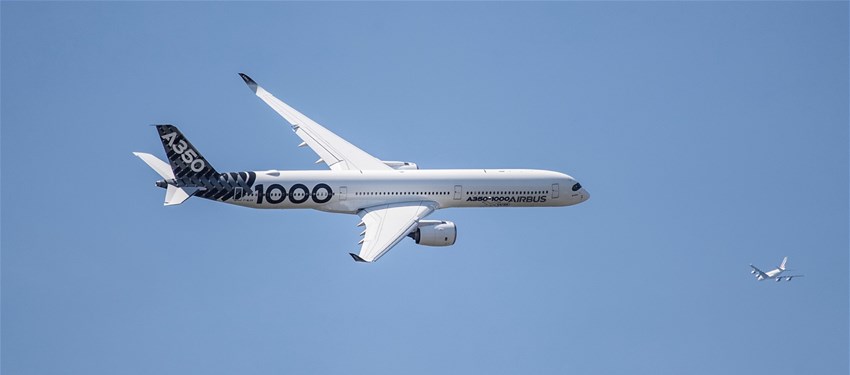The doctoral student has an important role in our research ecosystem
17 Aug 2020
According to GKN Aerospace in Trollhättan, long–term research and development work is vital in closing new business deals. The company invests heavily in research collaboration with University West and several other universities. At present, about 60 doctoral students work in the company's various projects in Sweden. "The work done by doctoral students is key to the breadth of our research", says Robert Reimers, Research and Development Manager in Production technology at GKN Aerospace.
 Photo: GKN Aerospace
Photo: GKN Aerospace
The aerospace industry is a research-intensive industry. Since the 1990s, GKN Aerospace has purposefully invested in developing new knowledge in production technology. The company participates in the National Aeronautics Research Programme (NFFP), where long-term technology development strengthens the international competitiveness of companies. 30 doctoral students participate in the current NFFP programme cycle.
– We are also a partner in several other research projects run by universities in Sweden, including University West, says Robert Reimers.
– In order to stay on the cutting edge of technology, our research and development work needs to be broad. In that respect we benefit greatly from the research done by doctoral students – they contribute to building our knowledge. The collaboration with doctoral students means that our staff can stay up to date and, above all, it gives us a good recruitment base for the future, Robert Reimers says.
Valuable recruitment base
GKN Aerospace works with both doctoral and industrial doctoral students depending on the type of project. Industrial doctoral students are recruited internally, while other doctoral students often come from universities. Many of them continue as employees in the company's R&D department where they develop and implement their research further.
– The influx of new knowledge and new individuals benefits the entire department. The advantage of industrial doctoral students is that their assignments are often tailored to our needs. That means that they can have a tighter connection to the company, says Patrik Johansson, who coordinates the doctoral students at GKN Aerospace.
Builds strong academic centers
– I see it as a win-win situation for everyone involved – for the doctoral student, the university, and the company. It is important to build strong academic centers. In this way, we create valuable symbiosis between industry and academia. Research collaboration is like an ecosystem where all parts play an important role, says Patrik Johansson.
GKN Aerospace's broad research portfolio spans a long period of time. In the early 2000s they began researching additive manufacturing, and in 2011 the technology was ready to be introduced as an industrial application on an engine part. Additional research and development has meant that the technology will be introduced on full-size aircraft engine components in 2021. The result is that GKN today is a global leader in this area of technology.
Research strengthens competitiveness
– Our long-term investment in research has given our company a completely new focus. During the 1990s, we shifted our production from 90 percent military aircraft engines to 90 percent civil aircraft and spacecraft engines. That shift required that we stay on top of technological developments in order to remain an attractive business partner, Patrik Johansson explains.
– Thanks to our investment in research and technology development, we are competitive on the global market and can close more valuable business deals, says Robert Reimers.


